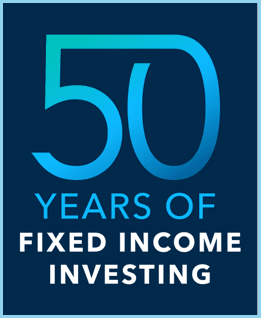Capital IdeasTM
Investment insights from Capital Group
Fixed Income
An allocation to emerging market debt (EMD) can offer investors a range of potential benefits in the context of their broader portfolios – not least its low correlation with other sub-asset classes of fixed income. The growth dynamics and strengthening economic fundamentals of many emerging market (EM) countries are attractive to investors seeking growth, income and diversification.
Although a passive approach can provide a low-cost introduction to local currency EMD, in this paper we discuss the potential benefits of an active allocation. These include access to a wider source of returns, given the ability to take off-benchmark exposure, and use multiple levers to capture different drivers of return and manage risk; and a more deliberate allocation of capital, which could mitigate unintended consequences of index construction.
Market value of JPMorgan local currency benchmarks
.png)
Past results are not a guarantee of future results.
As at 31 July 2023. MV: market value. JGEGDCM: JPMorgan GBI-EM Global Diversified Composite. JGEMBCM: JPMorgan GBI-EM Broad Composite. Source: Thomson Reuters Datastream.
The chart illustrates the growth of local currency EMD as an asset class. In July 2023, the market value of the JPMorgan GBI-EM Broad Index was US$4.6 trillion, while the JPMorgan GBI-EM Global Diversified Index represented only US$1.6 trillion. An active approach provides access to a broader range of markets and instruments which can help to provide greater diversification and an increased number of tools to more effectively manage any periods of heightened volatility.

Our latest insights
-
-
Long-Term Investing
-
-
-
Fixed Income
RELATED INSIGHTS
Hear from our investment team.
Sign up now to get industry-leading insights and timely articles delivered to your inbox.
Past results are not predictive of results in future periods. It is not possible to invest directly in an index, which is unmanaged. The value of investments and income from them can go down as well as up and you may lose some or all of your initial investment. This information is not intended to provide investment, tax or other advice, or to be a solicitation to buy or sell any securities.
Statements attributed to an individual represent the opinions of that individual as of the date published and do not necessarily reflect the opinions of Capital Group or its affiliates. All information is as at the date indicated unless otherwise stated. Some information may have been obtained from third parties, and as such the reliability of that information is not guaranteed.
Capital Group manages equity assets through three investment groups. These groups make investment and proxy voting decisions independently. Fixed income investment professionals provide fixed income research and investment management across the Capital organisation; however, for securities with equity characteristics, they act solely on behalf of one of the three equity investment groups.
 Edward Harrold
Edward Harrold
 Jeremy Cunningham
Jeremy Cunningham